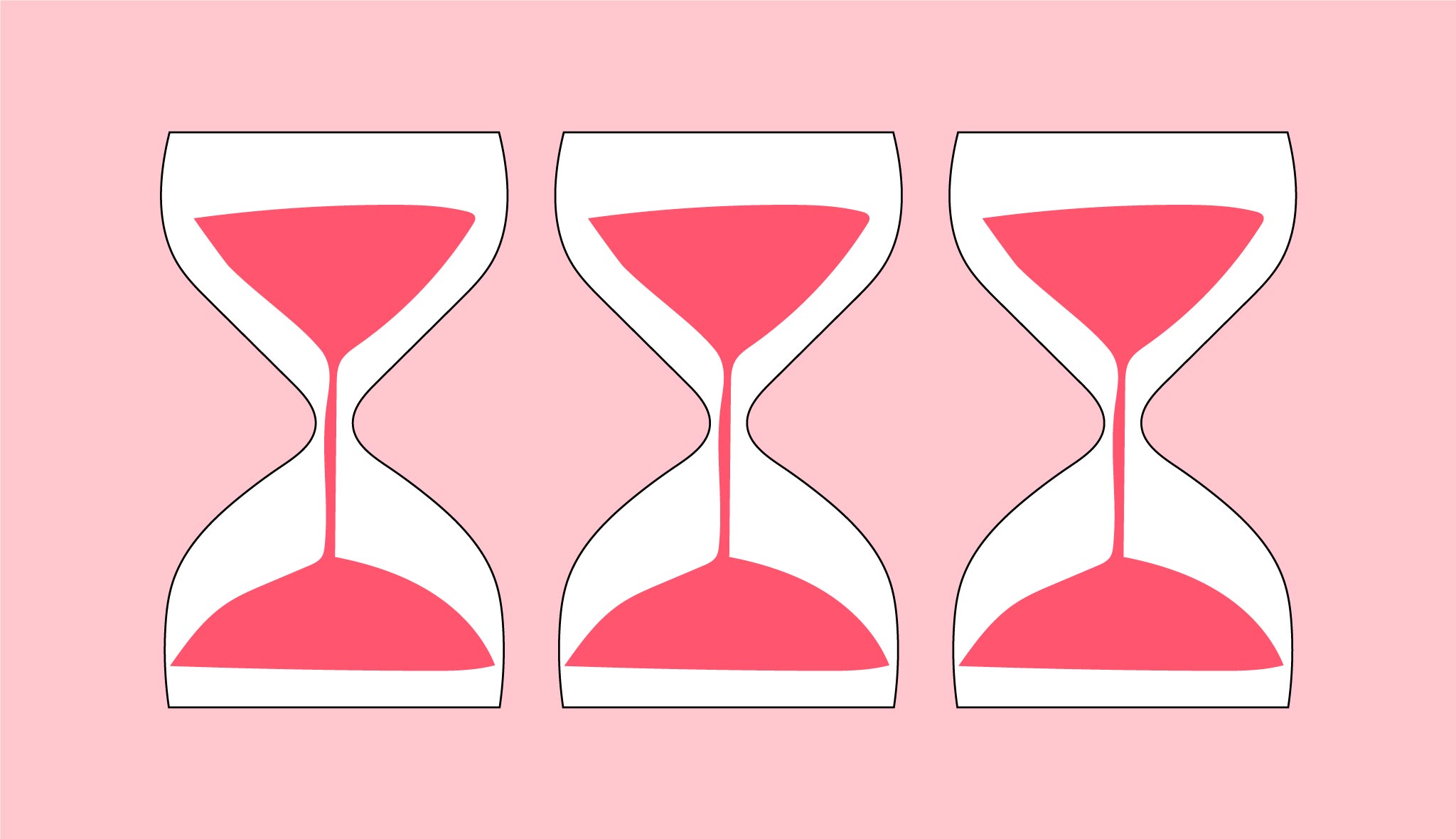Why Is My Period Late? Causes and What To Do.

We've all been there – that moment of panic when Aunt Flo decides to play hide-and-seek. In this blog post, we'll look into the reasons your period might be late, and what you can do about it.
Understanding the Menstrual Cycle
Before we look at the mysteries of a late period, let's have a quick refresher on the menstrual cycle. Typically lasting around 28 days, the menstrual cycle can range from 21 to 35 days and still be normal. It happens in two phases:
- Follicular Phase: This phase kicks off from the first day of your period. Your body is gearing up to release an egg from your ovaries.
- Luteal Phase: After ovulation, your body is in a waiting game, waiting for a potential fertilised egg. If this doesn't happen, your uterine lining sheds, leading to your period.
The possible causes of a late period include:
1. Stress
Stress isn't just a buzzword; it's a legitimate period party crasher. Chronic stress can wreak havoc on your hormonal balance, leading to irregular periods. When you're under stress, your body's delicate hormonal balance can go off, impacting different systems, including your reproductive hormones.
Cortisol, often referred to as the "stress hormone," plays an important role. Elevated cortisol levels can disrupt the balance of other hormones, leading to a late period, or even missed periods.
So, take a chill pill, practice some self-care, and give your body the relaxation it needs to restore hormonal harmony. Your period will thank you for it!
2. Weight Fluctuations
If you've gained or lost weight, it can throw your menstrual cycle off track. Extreme diets or intense exercise regimens can also disrupt your period.
Extreme diets can leave your body confused and unsure about its reproductive capabilities. Intense exercise, especially with extreme diets, can also tell your body that it's not a good time for reproduction.
3. Hormonal Birth Control
Starting or stopping hormonal birth control methods can throw your body a curveball. Your body might take a few cycles to adjust to the birth control pills and regulate a new normal.
Taking birth control pills can cause changes in your body due to the synthetic hormones in the pills. It may take a few periods for your body to adjust. When you stop taking birth control, your body also needs time to regain its natural rhythm.
4. Polycystic Ovary Syndrome (PCOS)
PCOS can cause your ovaries to develop small cysts and disrupt your hormonal balance. This can cause your periods to become irregular or even missed. But PCOS isn't just about periods; it often brings along other symptoms like acne and excess hair growth.
Understanding PCOS and working closely with your healthcare provider can help you find the right pieces to complete your unique puzzle.
5. Thyroid Issues
Thyroid disorders are a type of hormonal imbalance that can disrupt your menstrual cycle. The thyroid gland plays an important role in regulating hormones.
If you think thyroid issues might be the reason behind your late periods, speak to your healthcare provider. They can help fine-tune your thyroid and bring back the harmony.
6. Pregnancy
Okay, let's address the elephant in the room – pregnancy. If you've been intimate and there's a chance you could be pregnant, take a test. Your body can send subtle signals, such as missed periods, as an early sign of pregnancy.
Remember, taking a test early allows you to plan for what comes next. So, while it might feel awkward, a pregnancy test can provide clarity and guide your next steps.
7. Perimenopause
In your 40s, you might experience perimenopause, a transitional phase before menopause. During this phase, your reproductive system slows down, and your hormone levels can fluctuate.
One of the signs of perimenopause is irregular periods. Your periods might be late, come and go, or even become heavier or lighter than before. Perimenopause is a natural part of the aging process.
8. Medications
Certain medications can interfere with your menstrual cycle. If you've started a new medication recently, it's worth discussing potential side effects with your healthcare provider.
What to Do When Your Period Is Late
Now, what should you do when your period decides to take an extended holiday? Here's your action plan:
- Take a pregnancy test: If there's a chance you might be pregnant, grab a home pregnancy test. They're easy to access and offer reliable results.
- Monitor your symptoms: Keep an eye out for any unusual symptoms or bodily changes. These details can be important when discussing your concerns with a healthcare provider.
- Stay calm: Stress can be your period's worst enemy. Try relaxation techniques like yoga, meditation, or a good old-fashioned Netflix binge.
- Book an appointment with your doctor: If you have irregular periods or symptoms that worry you, talk to your doctor. They can identify causes and suggest the best treatments for regulating your period.
How Fluxies Can Help
While you're playing the waiting game with your period, Fluxies period pants can be your trusty sidekick. Here's why they are the best choice during the uncertainty:
- Leak-proof: Fluxies period pants have got your back (and front). They can handle different flows and give you leak proof protection.
- Comfortable and stylish: Fluxies combine both comfort and style. They feel like regular underwear, but work like magic.
- Eco-Friendly: By choosing Fluxies, you're making a green choice. These reusable period pants help reduce the environmental impact of disposable products.
- Budget-Friendly: Fluxies are the gift that keeps giving. Instead of always having to stock up on disposable products, invest in Fluxies for long-lasting comfort and protection.
Wrapping It Up
A late period can be scary, but remember there are many reasons for a late period. Stress, hormonal changes, and underlying medical conditions can all play a role. If you're concerned about irregular periods, don't hesitate to consult a healthcare provider for guidance.
In the meantime, choose Fluxies as your trustworthy period partner. With their leak-proof design, comfort, and eco-friendliness, they'll help you navigate your menstrual cycle with ease. Don't let a late period ruin your life; be prepared with Fluxies, your trusted bff in period care. Your period might arrive late, but it won't catch you unprepared!
FAQs
Is it normal for your period to be late?
It can be normal for your period to occasionally be late. Many factors, including stress, weight gain, weight loss, hormonal changes, and health conditions, can cause temporary irregularities in your menstrual cycle. However, if you consistently have irregular periods, it's a good idea to speak with a healthcare provider.
Why is my period late if I'm not pregnant?
While pregnancy is one common reason for a late period, there can be other causes of a delayed period. Stress, changes in body weight, hormonal birth control, thyroid disorders, and medications can all lead to a late period. If you're worried about an underlying issue, it's best to seek medical advice.
How long can your period be late?
The length of time your period can be late changes from person to person and depends on the cause. In most cases, a period that is a few days late is nothing to worry about. However, if your period is consistently irregular or weeks late, it's best to book an appointment with your doctor.
- Tags: Periods



